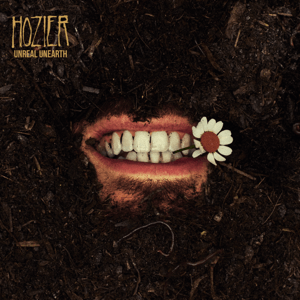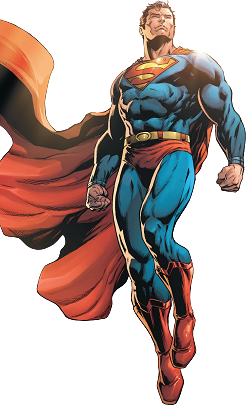
Andrew Hozier’s (known mainly as Hozier) third album, Unreal Unearth, was released on August 18, 2023. The music production was done by Bekon (who has worked with Kendrick Lamar and Drake), Jennifer Decilveo (who has worked with Miley Cyrus), and Jeff Gitelman (who has worked with The Weeknd and H.E.R.). The album is comprised of 16 tracks that detail Hozier’s own experience with the COVID-19 pandemic, but through the lens of Dante’s Inferno, and more specifically, Dante’s nine circles of Hell: Limbo, Lust, Gluttony, Greed, Anger, Heresy, Violence, Fraud, and Treachery. Growing up as an Irish Catholic, Hozier has often incorporated religion, mythology, and literature in his music.
Track 1: De Selby (Part 1)
With slow acoustic guitar and Hozier’s gentle vocals, the first track of Unreal Unearth gives the perfect preview of what is to come in the rest of the album. It begins with English lyrics and then slowly transitions to Irish, where he explains that someone bright comes to him “like nightfall,” and the two combine.
Track 2: De Selby (Part 2)
De Selby (Part 2) has a distinctly different mood than Part 1: it is more upbeat and starts far quicker than its counterpart. It differs from Hozier’s usual music by being more pop-oriented and heavily produced. Despite this, it is incredibly catchy.
Track 3: First Time
The third track of this album features a return to Hozier’s classic acoustic style, although the change from De Selby (Part 2) is a bit abrupt. The lyrics explain how Hozier’s partner has made him feel new and reborn, and he references the River Lethe, which, in Greek mythology, is known as the ‘River of Forgetfulness.’ In this case, he is forgetting the old part of himself and becoming a new man. He describes how he used to dislike how his name sounded, but Hozier found that he enjoyed it and soothed him when she said it. The last line, however, references the “final time” his partner called him ‘baby,’ which begs the question of what happened between them.
Track 4: Francesca
This song references Francesca da Rimini, who, in Inferno, was being punished in the second circle of Hell (Lust). In the story, Francesca is married to Giovanni, but she falls in love with Giovanni’s brother, Paolo. When Giovanni discovers their adultery, he murders them both, and they spend the rest of eternity in the second circle of Hell. In the song, Hozier says that he would “go through it again” and “do it again,” which could be him stating, through either Francesca’s or Paolo’s perspective, that if given the chance to have their affair again, their passion for each other would win every time. In the outro, he repeats, “Heaven is not fit to house a love like you and I,” suggesting Francesca and Paolo’s passion was mostly lust – not quite ‘true’ love. The song was a little more upbeat and exciting, considering the story that inspired it.
Track 5: I, Carrion (Icarian)
In track 5, Hozier compares himself to the famed Icarus, but in his version, he is saved by his lover (when Icarus was not). He hauntingly describes that he has soared to new heights and is burning but confidently says that he would not fall – he is lifted and held by his partner’s words and adoration. He also analogies that if their love were to die, he would fall to the ground, and in the final line, he prays for his lover not to “fall away” from him. It is a soft song with a harmonious ambiance to it.
Track 6: Eat Your Young
In Eat Your Young, Hozier references gluttony and possibly lust as well. This track is a thrilling portrayal of overconsumption and greed in the modern world. He speaks on how people will capitalize on just about anything and everything (“There’s money to be made, whatever is still to come”) and the sacrifices that people will willingly make for money (eating their young). He sings about how people who cannot afford certain luxuries will be left to “peel.” And although everyone is welcome at the table of gluttony, only a few will fully ‘succeed.’ He says there are “Seven new ways that you can eat your young,” which refers to how people participate in the seven deadly sins to get what they want, with little to no regard for others. It is a more upbeat track, and the accompanying music video perfectly depicts the scene Hozier describes.
Track 7: Damage Gets Done (feat. Brandi Carlile)
The harmonies with Brandi Carlile add depth to the song that you can feel in your bones. It speaks on the recklessness and passion of the youth, and more specifically, young love. He romanticized the hardships of being young and broke but in love and explained how they still felt like millionaires despite the difficulties they experienced. Then, it shows how they grow up, and they believe that “being reckless and young is not how the damage gets done,” but instead, it was how they outgrew each other. The upbeat song’s lyrics make getting older sound scary, but the music still manages to reassure that everything will turn out alright.
Track 8: Who We Are
Hozier described Who We Are as an acknowledgment that “not one thing is ever perfectly terrible or perfectly great.” He first expresses his heartbreak but then hopes that “someone with your eyes” would go to him and hold him – even if it causes him pain. He depicts how he and his (now ex) partner outgrew one another by “chasing someone else’s dream.” Although the lyrics are not as complex as some of his other songs’ lyrics, Hozier’s belted poetry still manages to convey a deep heartbreak and the lingering desire for that person while acknowledging the relationship’s toxicity.
Track 9: Son of Nyx
Track 9 is vastly different from all the other tracks in the album in one significant way: it is an instrumental. Hozier has said that the song is about Nyx (the goddess of the night) and her son, Charon, who transports people across the Styx River and to the afterlife. The piece was mainly done by Hozier’s friend, Alex Ryan, who sent him a voice memo of the song – which Hozier loved. Although not as interesting as the other songs on the album, knowing the mythology behind the track is helpful, and the long, haunted notes help one picture themselves being ferried across the river and into whatever awaits them in the afterlife.
Track 10: All Things End
All Things End is one of the best tracks on the album. It speaks on the impermanence of life, love, and objects. Hozier claims that people who go through life without having their hearts broken “didn’t do it right,” he analogizes plans to writing in sand – easily washed away. However, he also states that just because one should be aware of how “all things end,” that doesn’t mean that they (he and his lover, specifically) should completely change their plans when they “begin again” – which could refer to an on-and-off relationship. The music matches beautifully with the lyrics, with Hozier’s full passion shown in his vocal range and the choir-like outro that left chills on my body.
Track 11: To Someone From A Warm Climate (Uiscefhuaraithe)
This song is one of Hozier’s more straightforward ones, with limited metaphors. The song was literally written for a lover from a “warm climate,” which differs from Hozier because he grew up in Ireland. He speaks about how he has slept in a cold bed and needs another person to help warm it up. Then, he uses the word “Uiscefhuaraithe,” another name for his homeland. The soft and earthy tones make it an obvious love song: Hozier refers to the subject as “darling” and talks about their intertwined bodies bringing warmth to him and his life. He also analogizes himself to a river and his topic to the ocean and explains how they become a lake that “is boiling over,” which shows the warmth brought into his life.
Track 12: Butchered Tongue
Track 12 is a commemoration of the Irish language’s survival. Hozier takes pride in that his people’s language has survived for so long despite others’ attempts to stop them. A shorter song in comparison to the rest of the album, Butchered Tongue is a quiet and emotional ballad. Despite the language surviving, Hozier acknowledges that many of the meanings are still lost to history by mentioning the names of places in Ireland where people don’t know the importance of their hometown’s name: Although the tongue has survived, it is still butchered by its native speakers.
Track 13: Anything But
This track is more challenging to interpret than most on the album because of the mixed messages in the song. At first, Hozier speaks about not wanting to do anything and running away instead, but then he says that he would do everything if it meant the subject of his lyrics would listen to him. The song is more upbeat and includes a lot of belting and countless metaphors. He then speaks about how someone else touches his subject’s hand, and they “fly away together,” he conveys his jealousy that his lover has found someone new.
Track 14: Abstract (Psychopomp)
This slower song is very literal, especially for Hozier. Abstract is about a lost lover and how much he misses them. However, he says he does not regret meeting them, even though “the memory hurts.” He sings about how falling in love with his subject was inevitable – an innate course of nature. Hozier continues to worry about how he believes there will always be a part of him trapped in his life with this lover, and he speaks of it as a balance of his “love and terror.”
Track 15: Unknown / Nth
First going viral on TikTok in September 2022, Unknown / Nth was one of the first indications that Hozier was working on a new album. This song is about the ninth circle of Hell – Treachery. Written solely by Hozier, the haunting lyrics describe a relationship in which his lover repeatedly betrays him, yet he keeps returning to them. It depicts how his lover first seemed “like an angel” to him, but the song eventually, as Hozier said in an interview, “throws away the premise of angelhood.” A slow realization is that as much as he loves the person and would do anything for them, he would’ve been better off if his lover had remained unknown.
Track 16: First Light
A solid ending for the album, First Light, refers to surviving the nine circles of Hell, coming out on the other side, and, as he described, “having a new relationship with light.” Here is where we understand the ‘Unearth’ part of the album title. The song is a contrast to De Selby (Part 1), which is a celebration of darkness, and this one celebrates light. He beautifully describes the morning light and speaks of the subject (a lover, or perhaps God) “filling his cup.” He never wants to return to the darkness.



